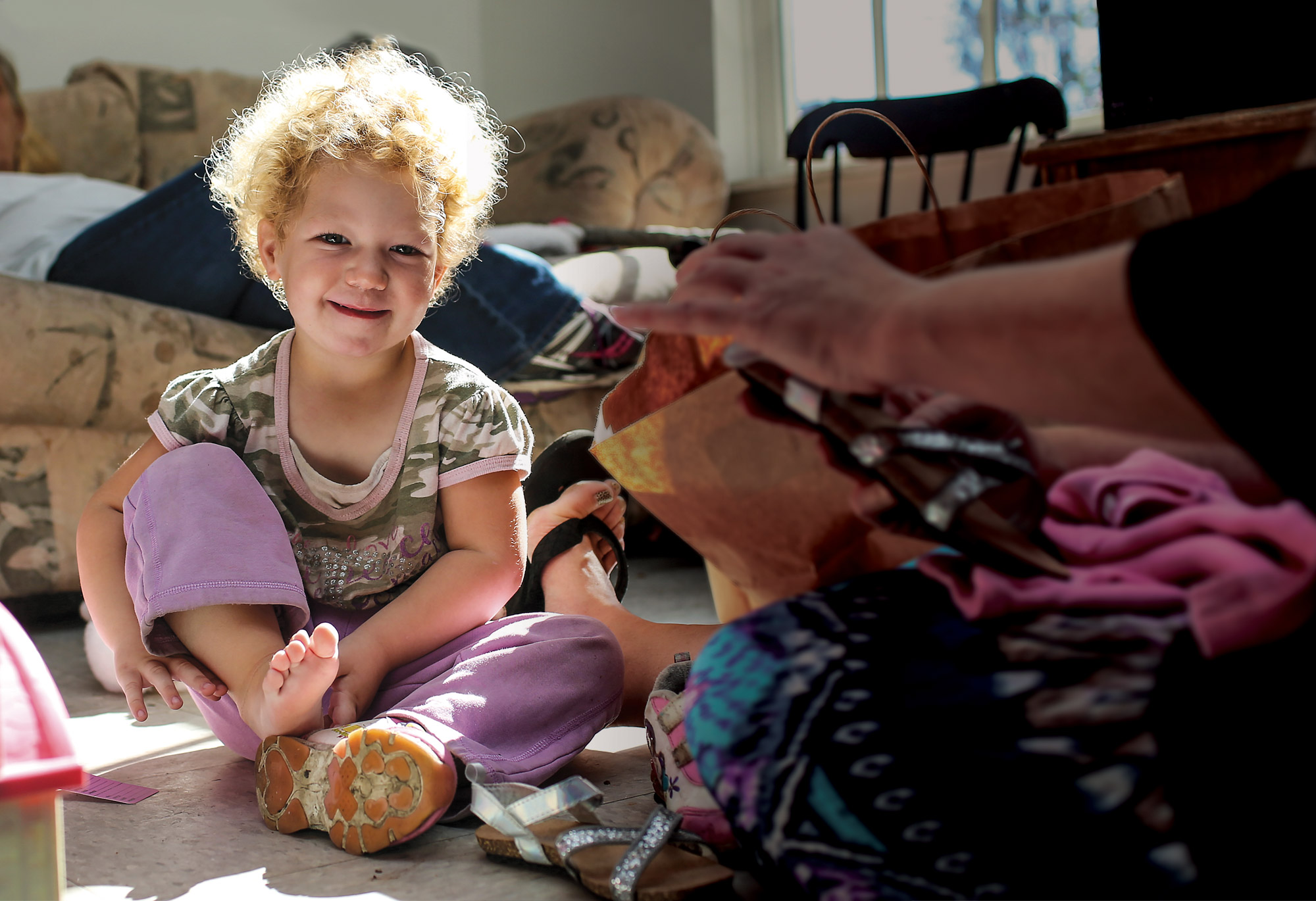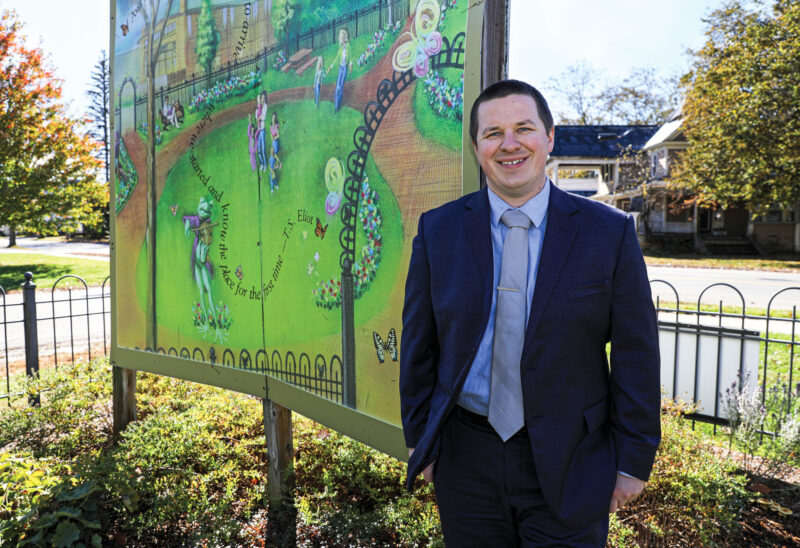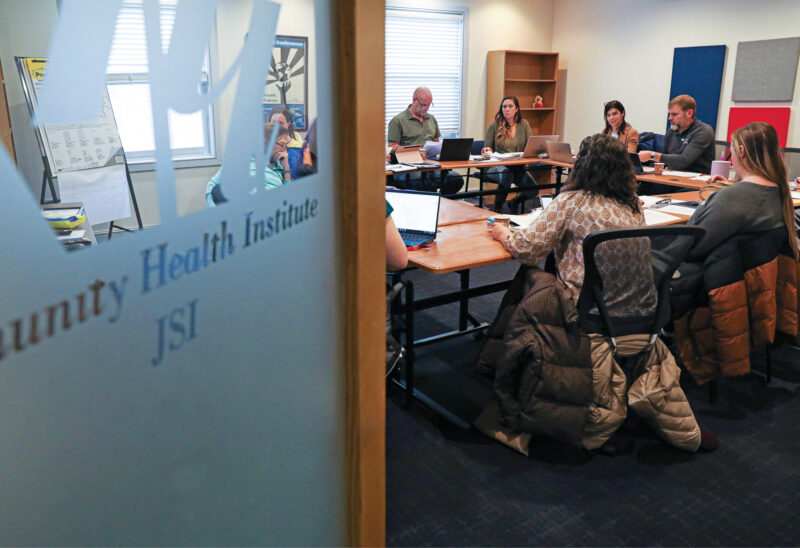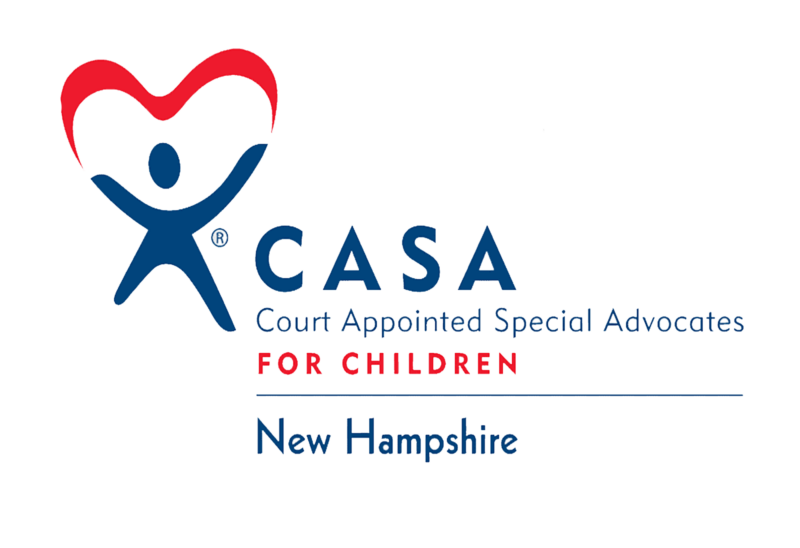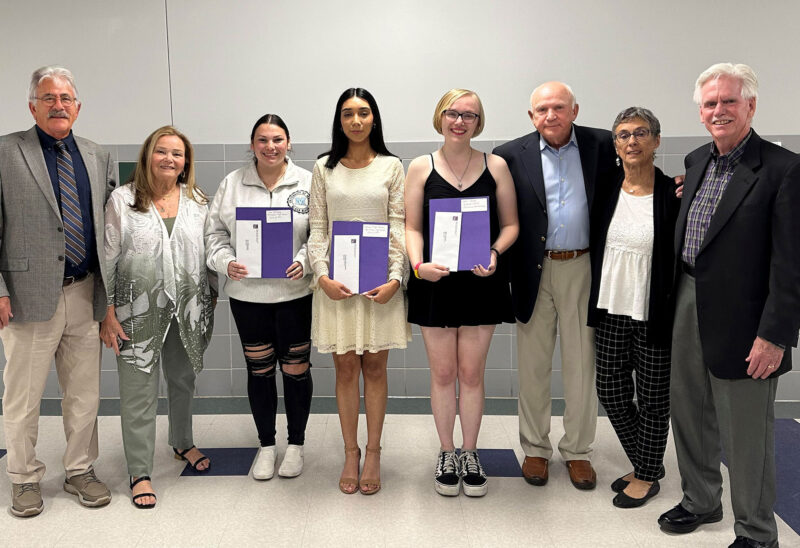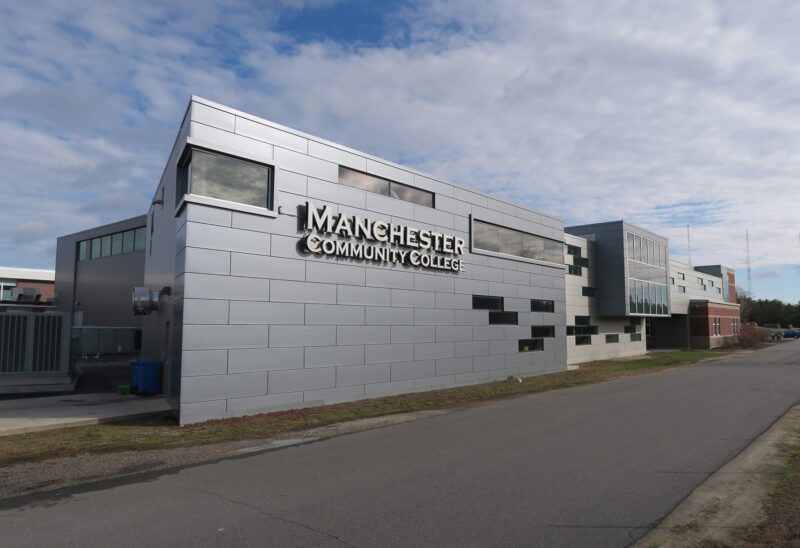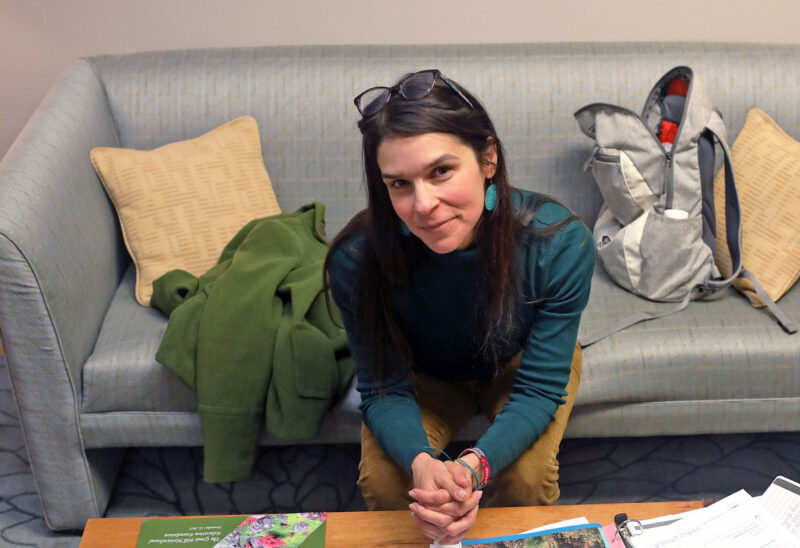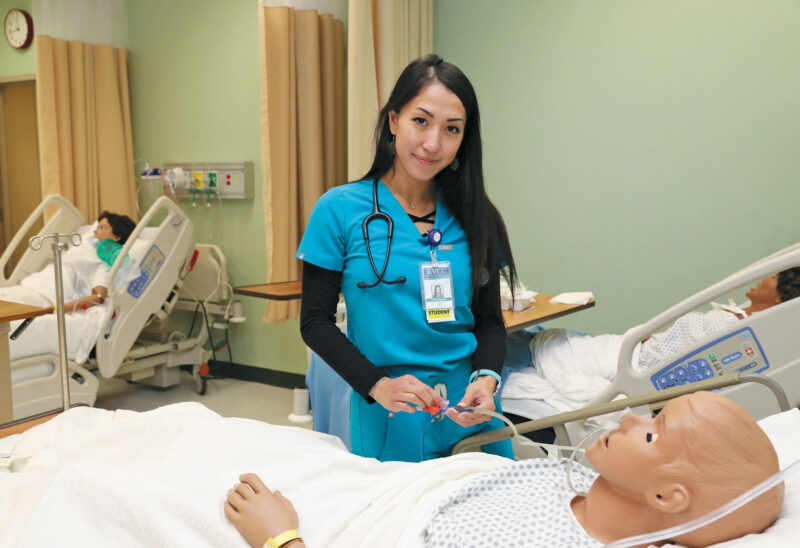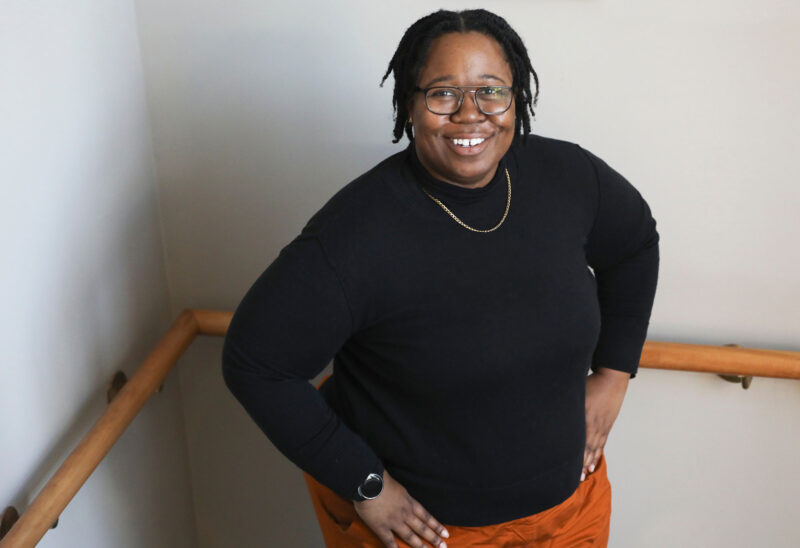Melony Williams pulls her decade-old Chevy Cobalt into a parking space near downtown Claremont. The building next door is charred from fire; the husk of a mill stands in the distance. Williams shoulders her toolbag and smiles. Her tools include brightly-colored blocks for sorting and stringing, developmental questionnaires, an app that delivers daily childhood “brain building” activities, board books — plus kindness, patience and a master’s degree.
Williams is the clinical supervisor with the TLC Family Resource Center. She oversees the center’s home visiting programs. She and her colleagues help some of the youngest and poorest of New Hampshire’s kids get early care and learning that help them thrive.
Emily and her daughter Liliana are waiting on the sidewalk. Almost 3-year-old Liliana is grinning an impish and irrepressible grin, her blonde curls tamed by an elastic hair tie. Williams has been with this family since before Lily was born. She went with Emily to her prenatal appointments and has met with the family regularly through multiple moves — including a period of homelessness — teaching parenting skills, doing developmental screenings, connecting Emily with resources and services to help Lily be ready for school and help her as she grows. She helped them get into their current, stable apartment.
This program follows the Healthy Families America model, a proven home visiting program as designated by the US Department of Health and Human Services. HFA’s results are impressive: improved birth weight, reductions in child abuse and neglect, healthier children, increased school readiness and academic success, improved parent-child interactions, more self-sufficient families. The program gives parents tools and skills to help their kids develop during the critical time from birth to age 3.
“She helps me know what Lily is supposed to be doing [developmentally], and ideas on how I can get her to where she should be,” Emily said. “I hope that when she grows up, and she’s a parent herself, that she will learn from me and become a good parent.”
A parenting skill learned and praised gets repeated. A young mom’s skill grows, her baby gets a stronger start.Tweet This
As part of its New Hampshire Tomorrow agenda to increase youth opportunity, the Foundation has made grants to six family resource centers to support home visiting programs, developmental screening, parenting classes and parenting support. The Foundation is also supporting the organizations to come together quarterly to share strategies and results.
“We are excited to be learning from these organizations about what works best and how we can help strengthen local systems that support young families,” said Foundation vice president Katie Merrow, who is coordinating the New Hampshire Tomorrow efforts.
The grants are part of a strategy to improve early childhood education and care. Other grants are helping to improve early learning centers and support advocacy to improve outcomes for kids. But some of the most at-risk kids come from families who cannot afford to send them to formal, licensed daycare — or to preschool. These grants aims to boost parents’ skill as “first teachers.”
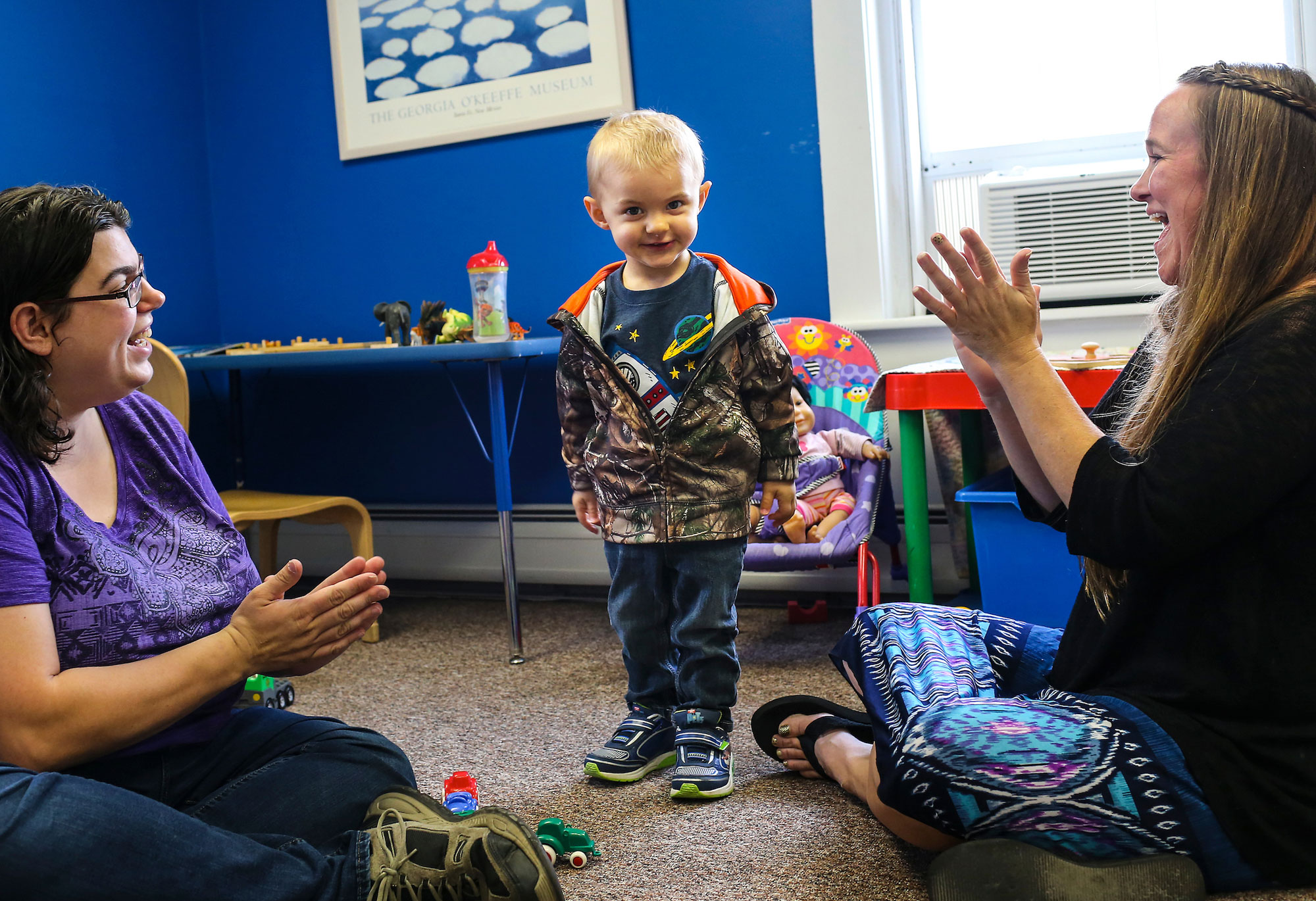
The early years are critical: learning in those years lays the foundation for all learning that comes later. And a dollar invested in early childhood development nets an average $7 return in productivity and saved societal costs.
The way Williams sees it, giving these kids a chance to thrive means her community improves. “I hope they can grow up and this community can be better because people are invested in it and want to make it a nice place to live.”
And, she says, “I hope that the kids feel good about themselves and know that they are loved. It changes your whole life when you know somebody loves you.”
Another family chooses to come to the Claremont center to meet with Williams.
Krystle works full-time at Cumberland Farms. She and her son Jaxon, who is almost two, live with her parents.
As Williams and Krystle discuss problem solving and developmental stages, Jaxon makes forays to explore the room, coming back regularly to touch base with Krystle.
“That teaches him that he can do things on his own, but that you will be here to help him,” Williams points out to Krystle, who smiles shyly.
When Jaxon says a word — door, dog, block — Krystle repeats it. This may seem intuitive — but such interactions help a child’s brain grow, and build his trust in the people around him.
“That’s really good how you say what he says right after, so he knows you’re understanding him,” Williams says. A parenting skill learned and praised gets repeated. A young mom’s skill grows, her baby gets a stronger start.
Next, Williams produces a copy of “The Very Hungry Caterpillar” from her tool bag.
“Want to look at the book?” she asks Jaxon.
The tot sets off toward her at a run, eyes alight.
“Book!

